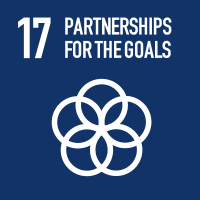Studying at the University of Verona
Here you can find information on the organisational aspects of the Programme, lecture timetables, learning activities and useful contact details for your time at the University, from enrolment to graduation.
Study Plan
The Study Plan includes all modules, teaching and learning activities that each student will need to undertake during their time at the University.
Please select your Study Plan based on your enrollment year.
1° Year
| Modules | Credits | TAF | SSD |
|---|
Professional Laboratories (1st year)
2° Year activated in the A.Y. 2024/2025
| Modules | Credits | TAF | SSD |
|---|
Professional Laboratories (2nd year)
3° Year It will be activated in the A.Y. 2025/2026
| Modules | Credits | TAF | SSD |
|---|
Professional Laboratories (3rd year)
| Modules | Credits | TAF | SSD |
|---|
Professional Laboratories (1st year)
| Modules | Credits | TAF | SSD |
|---|
Professional Laboratories (2nd year)
| Modules | Credits | TAF | SSD |
|---|
Professional Laboratories (3rd year)
Legend | Type of training activity (TTA)
TAF (Type of Educational Activity) All courses and activities are classified into different types of educational activities, indicated by a letter.
Relationship in nursing care - PRINCIPI E TECNICHE DELLA RELAZIONE ASSISTENZIALE (2024/2025)
Teaching code
4S000096
Teacher
Credits
2
Language
Italian
Scientific Disciplinary Sector (SSD)
MED/45 - NURSING
Period
1 SEMESTRE PROFESSIONI SANITARIE dal Oct 1, 2024 al Dec 20, 2024.
Courses Single
Not Authorized
Program
General principles of communication Watzlawick's axioms of human communication The bases and forms of communication Non-verbal communication (gaze, gestures, posture, facial expressions) Proxemics: distance in the social relationship The matrix context of meanings The principles of the nursing assistant relationship - patient - Carl Rogers paradigm: non-directivity, centrality of the person, respect, positive and unconditional acceptance, congruence, authenticity; empathy and declination in the care relationship - the right distance in the helping relationship Styles and techniques that facilitate the interview in the relationship - listening (empathic listening, critical listening, active listening) - asking (closed questions, open questions, directing questions) - supporting and encourage the patient (ECO technique, assent) - understand and support (techniques: reframe, mirror, legitimize, empathic comments, recap) Styles and attitudes that do not facilitate communication - relationship (making judgments, approving or disapproving of the patient's behaviors, sentences stereotypes, communicative infantilization) Starting, maintaining and ending a helping relationship in the daily care system Gaining the patient's trust Knowing the patient's history and agenda to explore subjectivity, agreeing on trust, knowing the story Communication in assisting people with deficits sensory. Strategies to improve the quality of communication with deaf, blind and aphasic people
Bibliography
Didactic methods
Strategies to facilitate participation and interaction Watching short films Analysis of cases, assistance stories… Summaries with responders at the beginning of the lesson Interview with experts Final group work The teaching material will be uploaded to the Moodle platform 1-2 days before the lesson
Learning assessment procedures
- Written and integrated examination for the three modules
- Exam taken in-person
- Pre-registration required via Esse 3
- At discretion of faculty to accept unenrolled students
- Required to take at least 2 parts
- Grade retention (for the next two appeals) if at least 2 parts have been passed
- Request for adjustment of exam papers: you must send an email, with all necessary information, to inclusione@ateneo.univr.it, at least 20 days before the date set for the exam. If you intend to request the division of the test into several parts, you must also send a prior email at the beginning of the teaching classes (and in any case a maximum of 30 days after the first class).
- Total time 3 hours and 30 minutes
- Principles and techniques of the caring relationship: 1 hr. 15 min.
- Clinical psychology: 1 hour and 15 minutes
- Therapeutic education: 1 hour
- Type of questions:
- 5 closed multiple-choice questions
- 5 open-ended short answer questions
- 6 open-ended questions
- 1 case for analysis on communication techniques and agenda
Evaluation criteria
- Evaluation on a 30mi scale - Evaluated the level of knowledge and application of the contents covered in the classroom to clinical cases. - Minimum score of 18 out of 32 points available. - Closed multiple choice questions = 0.5 pt - Closed multiple choice questions (2 correct answers) = 1 pt - Open short answer questions = 1 point - Open questions = 3-5 pts depending on the taxonomy (knowledge, application , analysis, reflection) - 3 working days from the publication of the results to refuse the grade - Request to view the exam to be sent via university email to the individual teacher
Exam language
Italiano




